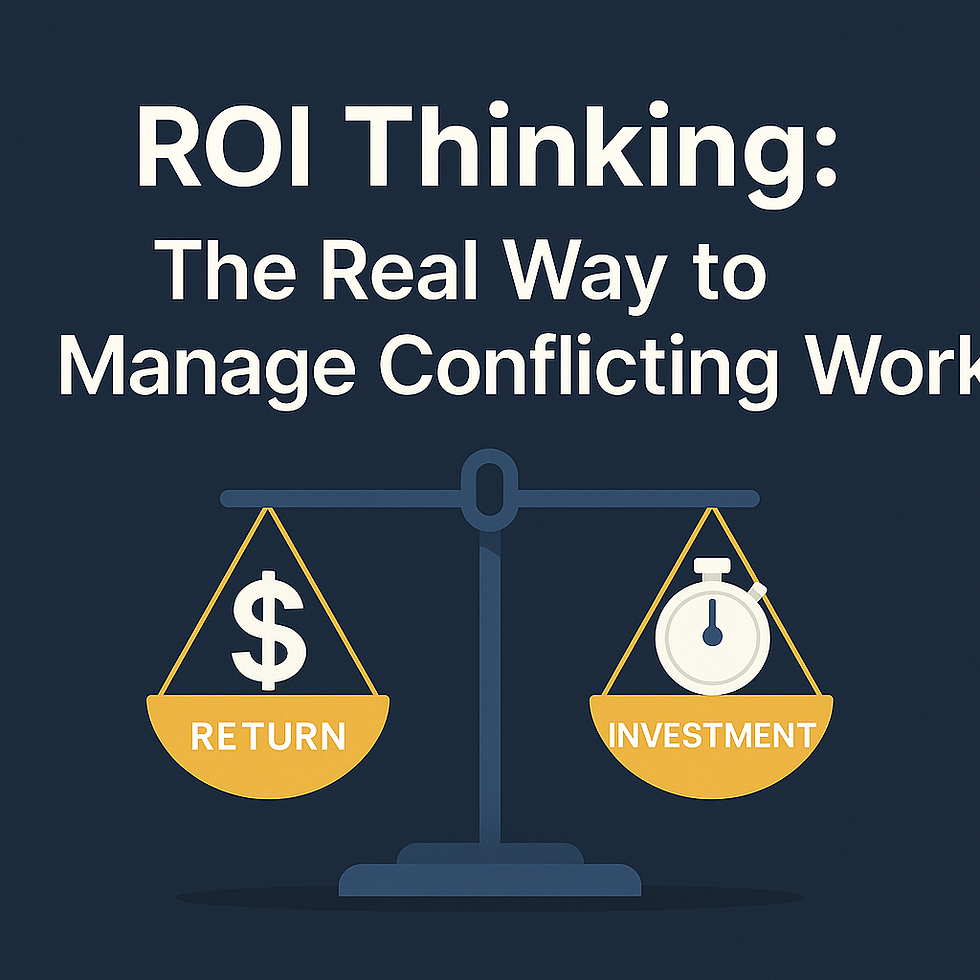Behind the Salesforce Expensive Licensing: Should engineers be worried?
- Admin
- Apr 12, 2025
- 4 min read
Updated: Apr 19, 2025

If you’ve ever worked in a large company that uses Salesforce across sales or service teams, chances are you’ve heard the number:
“We’re paying a million dollars or over a year for Salesforce”
And every time that number comes up, it triggers a wave of questions:
Is Salesforce really worth that much?
Should we renew? Should we build our own CRM?
Is it time to explore alternatives?
As a tech lead or team engineer, you may not be in the room making those decisions—but you feel them. Especially when that budget line becomes the biggest tech cost across departments.
Salesforce Is Unique in the Eyes of Leadership
Other engineering systems may run on shared Cloud Infra such as AWS or Azure and have a large footprint—but rarely does a single internal-facing app rack up a million-dollar contract. Salesforce stands out. It’s visible. It’s business-critical. But it’s also expensive.
And that visibility brings scrutiny. Every renewal cycle becomes a conversation:
“Do we really need Salesforce?” “Could we build something internally?”
Can You Really Just Replace Salesforce?
Even hypothetically—say a company wants to replace Salesforce and wonders,
“Should we keep renewing this, or can we engineer something custom?”
Sounds good in theory. But engineering a CRM means more than creating a few custom database tables and throwing a UI on top.
To build a replacement, you have to understand the science of CRM.
Not just how it works—but why it works.
You need domain expertise. Deep understanding of:
Lead-to-cash processes
Customer case flows
Multi-channel communication handling
Sales pipelines, reporting, integrations, and more
And most management doesn't actually even want to invest in that science. May be they are not even aware of it. They might just think, “Well, it’s just a few forms, some dashboards, and users clicking buttons, right?”
That’s not how real CRMs are born.
The great CRM platforms—Siebel, even before Salesforce—were born out of that science. The domain understanding came first, then the product. Salesforce just happened to ride the cloud wave, deliver faster, and out-execute everyone else.
But the core domain science? That was always there.
Without that foundation, you’ll build something fragile. Something you can’t maintain. Something that doesn’t scale.
And ironically, Salesforce is usually not even your core system of record.
It’s not fulfilling orders. It’s not doing payment processing. It’s mostly internal. It doesn’t even have millions of users.
And so it is very hard to even build a case to spend so much internal engineering on it.
The Market Is Also Chipping Away at Salesforce
Another reason these questions are rising now more than ever?
The Salesforce moat is no longer solid across all fronts.
Take Marketing Cloud, for example. Despite Salesforce’s vision of unifying all clouds—Marketing Cloud never fully clicked with the core CRM. Even many years after the ExactTarget acquisition, it felt like a bolt-on, not a native part of the stack.
This gave space for new competitors like Braze, and especially HubSpot to rise—with simpler pricing models, better product focus, and cleaner integration strategies.
So yes, Salesforce is still the king in many areas—but the market is chipping away at the edges.
So Should You, As an Engineer, Be Worried?
It depends on your role—and where you’re working.
If you’re in industry, hired as an engineer:
Yes, you should be thinking ahead. Salesforce is just one way to solve business problems. Your real value is in understanding how systems connect, how data flows, and how to build middleware, integrations, and solutions that aren’t boxed into one platform.
And this is where foundational engineering skills matter more than ever.
Understanding architecture
Knowing system design principles
Building resilience in integrations
Making platform-agnostic decisions
If leadership questions the Salesforce investment, it’s not you they’re doubting—it’s whether the company should keep renting a solution instead of engineering one.
And you need to be ready to contribute meaningfully to either path.
If you’re in industry, hired as a developer :
You’re safer—for now.
The expectations are different. The job posting likely reflected exactly what the team needed: someone to maintain, configure, and build within the Salesforce ecosystem.
You’re not being asked to architect entire systems—just build within what exists.
But roles evolve. And eventually, developer roles bleed into engineer responsibilities. So it’s good to be aware of that shift.
(We’ve written more about the Developer vs. Engineer expectation divide in another post)
If you’re in consulting:
The scope of this article concerns mainly for the Engineers, just some bonus thoughts for Consultants. The anxiety is different. It’s not about Salesforce going away—it’s about keeping up with it.
New acquisitions. New clouds. New tools.
As a consultant, your value is tied to how up-to-date and versatile you are across Salesforce’s ecosystem.
You can’t afford to get too comfortable with just one cloud.
You have to stay ahead of the product curve, or risk becoming irrelevant to client needs.
A Million-Dollar Line Item Will Always Spark Doubt
It’s natural. It’s valid.
But Salesforce isn’t just a platform—it’s an ecosystem. And unless your org is truly ready to build and maintain something just as good, the “let’s replace it” conversation often ends right where it started.
Still, for those of us on the technical side—especially those with engineer titles—it’s a reminder:
Your long-term value isn’t in mastering just Salesforce.
It’s in learning what problems Salesforce solves—and being ready to engineer those solutions with or without it.



Comments